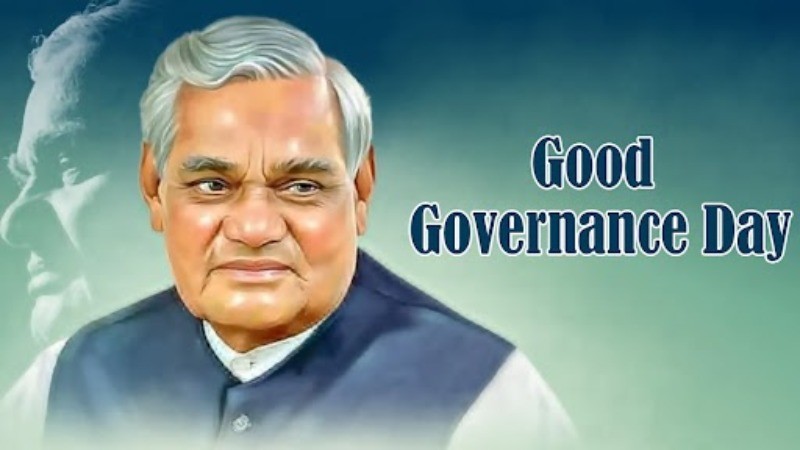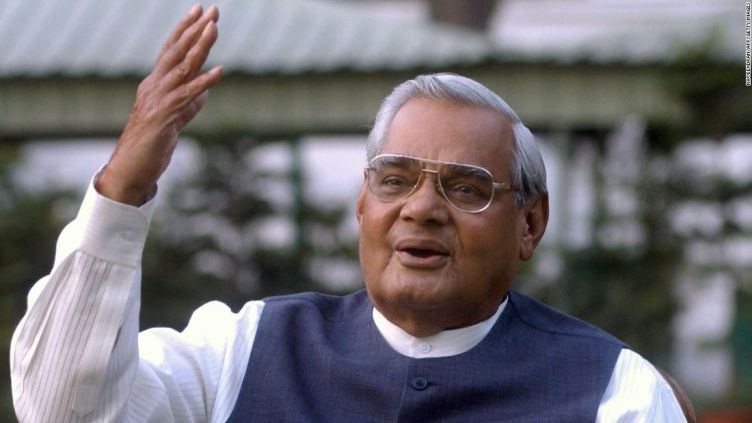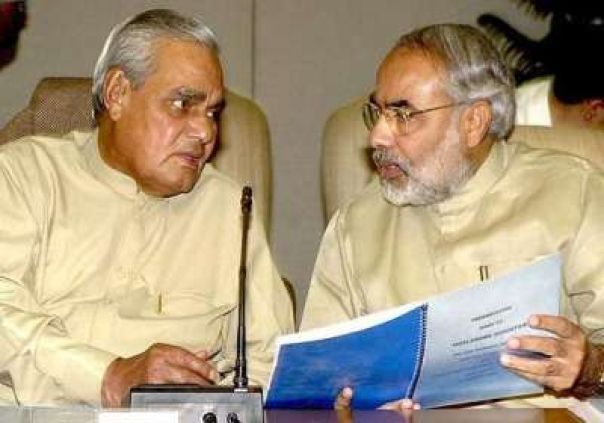
Today, on the birth anniversary of former Prime Minister Shri Atal Bihari Vajpayee, India observes Good Governance day every year since 2014. The day aims to make the Indian citizens aware of the accountability in the Government. The Good Governance day is a working day for the Indian Government. The objective is: Minimum Government and Maximum Governance.
The establishment

Then President Pranab Mukherjee announced the names of Atal Bihari Vajpayye (90) and Pandit Madan Mohan Malviya (posthumous) as recipients of the Bharat Ratna, India’s highest civilian honor on 23rd December 2014. After the announcement, Prime Minister Narendra Modi established the birth anniversary of Atal Bihari Vajpayee to be celebrated as the Good Governance day.
What is Good governance?

Governance refers to the process of decision-making and the process by which these decisions are implemented.
According to the World Bank, the definition of Good Governance is, “the manner in which power is exercised in the management of a country’s economic and social resources for development.”
Former United Nations Secretary General Kofi Annan defined it as, “Good governance is ensuring respect for human rights and the rule of law; strengthening democracy; promoting transparency and capacity in public administration. It is perhaps the single most important factor in eradicating poverty and promoting development.”
The United Nations states 8 principles of Good governance:
Participatory- The people of the country, all genders, sections and strata are able to participate, i.e. voice their opinions with freedom of association and expression.
Rule of law- That the law shall prevail above all, it is enforced impartially.
Consensus oriented- Everyone achieves the broad minimum and even the differing interests shall be in the best for the society.
Equity and inclusiveness- The society should be equitable and there are equal opportunities for everyone to improve and grow.
Effectiveness and efficiency- That the institutions and processes carried out shall be able to produce the outcome that meets the needs of the society,
And the resources should be utilized effectively to achieve the maximum output.
Accountability- The Good governance can never be achieved without accountability. It is important that government institutions, private bodies and civil society organizations are responsible to the people. All of these have an accountability towards their people.
Transparency- The right of the people to have an access to all the information concerning them in an understandable manner.
Responsiveness- All the stakeholders should be served by the institutions.
The measures for Good Governance
The Government of India has adopted several means for good governance in India. Several initiatives are promoted that encourage good governance. These are mentioned below:
The Right to Information
The RTI Act was passed in 2005. It ensures the responsiveness of the Government with the citizens having a transparent access to all the information that is necessary for them to know. Moreover, India is a part of the International Covenant on Civil and Political rights (ICCPR). The article 19 in it provides Right to information, which is abided by the members of the ICCPR.
E- Governance
The E- governance initiative has made the Government to be more responsive, efficient, transparent and reliable for the public. The plan is to make all the services accessible to the public of every region and locality. In the period of digitalization, e-governance will deliver more promisingly to the people. They will be able to avail direct benefits of Government services.
The programs working in this direction are: Pro-active governance and timely implementation (PRAGATI), Digital India program, Passport Seva Kendra, Online Income tax return and many more.
Decentralization
In order to promote a ‘Cooperative federalism’, the Centralized planning commission was abolished and replaced with the National Institution for transforming India (NITI Aayog).
Moreover, now the states have more freedom to start the schemes and policies seeing to the local needs catering development.
The Aspirational Districts Programme (ADP) with the objective to transform 115 most backward districts of the country.
The ease of doing business launched by the Government to improve the business conditions, business environment as well as the policy ecosystems (with GST, money laundering laws)
The Good Governance Index
Prime Minister Narendra Modi launched the Good Governance Index the same day in 2019. With this, the States have an access to assess the status of governance. Also, the impact of various measures taken by the State Government and Union territories.
It is a tool which provides authentic quantifiable data through which the state of governance in the country can be compared. With this, strategies can be planned and molded for better governance and smooth administration.
Despite plenty of initiatives towards good governance, challenges still exist. Even now, there is centralization in administration, corruption in the system, criminalization in politics, ousting of the socially and economically backward sections.
2024 celebrations

The Prime Minister is going to visit Madhya Pradesh and lay foundation for numerous projects in Khajuraho. Key projects include the Ken-Betwa river linking project and the inauguration of Omkareshwar floating solar project in Khandwa. On Atal Bihari Vajpayee’s centenary, the PM has even penned an emotional note for the former leader, mentioning about his contribution towards building the nation. President Draupadi Murmu, Vice President Jagdeep Dhankar along with Prime Minister Narendra Modi payed floral tributes to the late statesman on his 100th birth anniversary at Sadaiv Atal memorial. Other leaders were also present at the memorial.
The PM will also honor Vajpayee by releasing a commemorative stamp and coin in his name. He will also lay the foundation for 1,153 Atal Gram Sushasan buildings to support the Gram Panchayats. And the activities under the Sushasan Saptah week observed from 19th December till today, various events have already been organized.
The true respect for Atal ji will be when India actually thrives with good governance. When there is real transparency, accountability and responsiveness in the system, and the governance reaches to the ‘Antyodaya’, i.e. the last among all the sections of the society. The probity in governance needs to be ensured too.